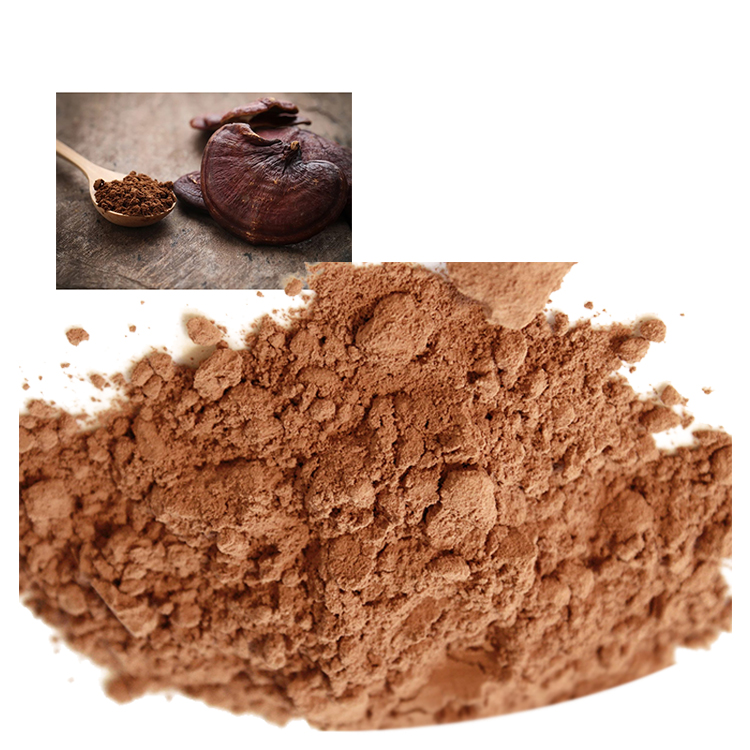As the market for functional mushrooms expands rapidly, sustainability is no longer just a buzzword—it’s a requirement for serious global buyers, ethical brands, and health-conscious consumers. For Reishi (Ganoderma lucidum) extract, creating a genuinely sustainable supply chain means more than certifying end products; it requires deep transparency, ecological stewardship, and shared responsibility from farm to finished good. This article examines best practices for building a traceable and eco-friendly Reishi supply chain, offering actionable insights and case studies that reference leading ingredients such as USDA Certified Ganoderma Powder, Organic Mushroom Extract Powder, and Organic Red Ganoderma Powder.
1. Traceable Raw Material Sourcing: Why It Matters and How to Achieve It
Farm-to-Finished-Product Transparency
Leading suppliers of USDA Certified Ganoderma Powder use integrated traceability systems, tracking every lot from spore to harvest, drying, and processing. This enables brands and consumers to verify origin, quality, and compliance with organic standards.
QR codes and blockchain platforms now let buyers scan product labels and instantly view farm data, certifications, and even batch-specific lab results.
Supplier Auditing and Documentation
Key buyers of Organic Mushroom Extract Powder conduct annual supplier audits—reviewing farm practices, environmental policies, and compliance with Good Agricultural and Collection Practices (GACP).
Comprehensive documentation (certificates, field maps, input records) builds trust and enables rapid recall or investigation if issues arise.
Case Example:
A top US supplement company sources Organic Reishi Mushroom Powder only from audited farms in Zhejiang, China, with full field-to-factory traceability. This policy has reduced ingredient rejection rates and improved end-consumer confidence.
2. Ecological Cultivation: Sustainable Practices from Farm to Harvest
Eco-Friendly Growing Substrates
Organic Red Ganoderma Powder and premium Ganoderma Extract Powder are produced using sustainable substrates (oak, beech, agricultural byproducts) that minimize chemical inputs and promote soil health.
Composting spent substrate and integrating with local agriculture closes nutrient loops and prevents waste.
Pesticide-Free and Organic Standards
True sustainability requires strict avoidance of synthetic pesticides, herbicides, and fungicides—practiced by all reputable producers of USDA Certified Ganoderma Powder.
Integrated pest management (IPM), crop rotation, and biological controls are used instead of chemicals.
Biodiversity and Ecosystem Balance
Some farms maintain natural forests or agroforestry systems around their mushroom beds, supporting pollinators, birds, and soil microorganisms.
Water conservation practices, including rainwater collection and drip irrigation, further reduce environmental impact.
Case Example:
An Organic Mushroom Extract Powder supplier in Yunnan, China, achieved a 30% increase in yield and a 20% reduction in water use after transitioning to a mixed agroforestry model with bamboo and tea intercropping.
3. Certification, Quality Control, and Continuous Improvement
Organic & Third-Party Certification
Products like Organic Reishi Mushroom Powder and USDA Certified Ganoderma Powder should always come with organic, non-GMO, and sometimes Fair Trade or Rainforest Alliance certifications.
Third-party audits validate claims, drive improvement, and enable market access in the US, EU, and Japan.
Batch-Level Testing and Documentation
Every batch of Ganoderma Extract Powder or Organic Red Ganoderma Powder should be tested for heavy metals, pesticides, microbial contamination, and active compound levels.
Transparent results are shared with partners and buyers—often via QR code or online portal.
Continuous Improvement & Stakeholder Engagement
Leading brands offer training to farmers, invest in new eco-friendly technologies, and share sustainability reports.
Collaboration across the value chain—farmers, processors, logistics providers—enables ongoing reduction of carbon footprint and waste.
Case Example:
A multinational beverage group using Organic Red Ganoderma Powder launched a “Grower Partner” program that provides technical support, financial incentives, and co-branded storytelling, linking sustainability directly to product marketing.
Conclusion
A sustainable Reishi supply chain requires much more than a certificate—it is a daily commitment to transparency, ecological farming, fair partnerships, and science-based quality control. For companies committed to long-term growth and true brand value, investing in traceability and ecological cultivation—supported by top-tier ingredients like USDA Certified Ganoderma Powder, Organic Mushroom Extract Powder, Organic Reishi Mushroom Powder, Ganoderma Extract Powder, and Organic Red Ganoderma Powder—sets a new global standard. In the years ahead, only those who can prove the journey from farm to finished good will win trust in the premium wellness marketplace.
Included keywords: USDA Certified Ganoderma Powder, Organic Mushroom Extract Powder, Organic Reishi Mushroom Powder, Ganoderma Extract Powder, Organic Red Ganoderma Powder.
Read More:
Real Consumer Feedback on Ganoderma Extract: Honest Reviews & Global Insights
Thirty Days on Ganoderma Extract: What Changed in My Body?
Precautions and Contraindications When Taking Ganoderma Extracts: A Comprehensive Guide
Hangzhou Molai Biotech Co., Ltd has supply capacity 1200+ tons per year for mushroom powders and extracts, including the mushroom mycelium from modern technology of Deeply Liquid Fermentation and fruiting bodies from the grown real mushrooms to meet the different markets.
Hangzhou Molai Biotech Co., Ltd supplies the products both in Powders and Extracts for commercial using worldwidely, such as Cordyceps Sinensis, Cordyceps Militaris, Maitake Mushroom, Lion’s Mane Mushroom, Turkey Tail Mushroom, Reishi Mushroom, Chaga Mushroom etc.
We offer OEM and ODM services, could extract the products according to your special requirements, process the powders/extracts into Capsules, Tablets, Small Bags, Mushroom Bars, Mushroom Coffee etc.
Organic Lion's Mane Mushroom Extract
Organic Reishi Mushroom Extract
Organic Cordyceps Militaris Extract
Organic Turkey Tail Mushroom Extract
Organic Chaga Mushroom Extract
Organic Shiitake Mushroom Extract
Organic Maitake Mushroom Extract
Organic Tremella Mushroom Extract






